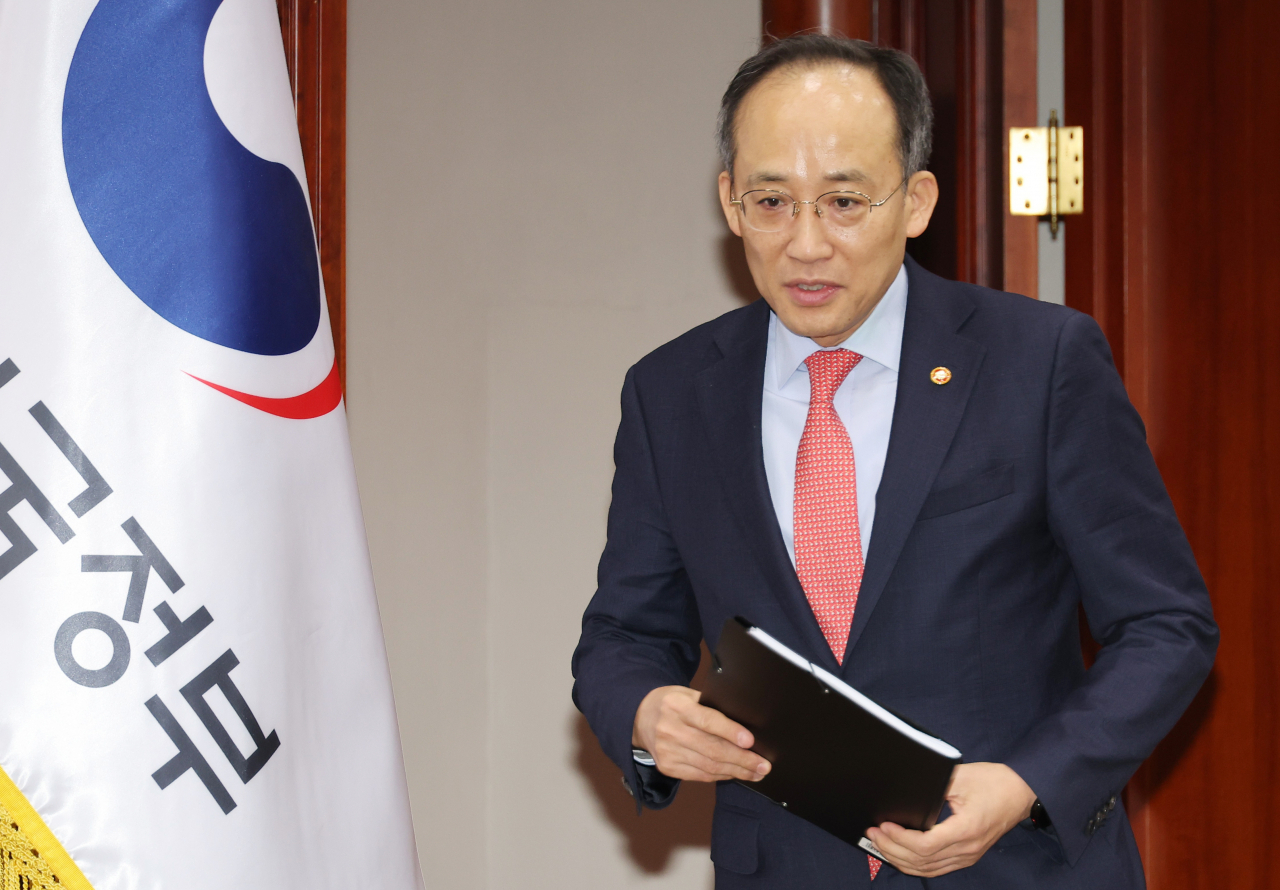 |
Finance Minister Choo Kyung-ho enters the venue of an emergency meeting with economy-related ministers in Seoul on Friday. (Yonhap) |
SEJONG -- South Korea's exports are anticipated to remain sluggish "at least" through the first six months of 2023, the finance minister said Friday, while inflation is expected to slow in the latter half.
Finance Minister Choo Kyung-ho made the remark ahead of a closed-door meeting with economy-related ministers, after South Korea reported sluggish export figures and worrisome inflation data for January earlier this week.
"Exports have lost ground for four consecutive months since October, due to the falling prices of chips and disruptions in China's business activities," Choo said. "Following seasonal factors, such as an increase in energy imports over the winter, the trade deficit for January also expanded."
Outbound shipments fell 16.6 percent on-year to come to $46.27 billion in January, following a 9.5 percent on-year fall the previous month. The trade deficit reached an all-time monthly high of $12.69 billion.
The finance minister said South Korea is expected to face difficulties in exports at least through the first half.
Choo, however, said it is notable that external conditions may improve down the road, with the International Monetary Fund revising up its growth forecast of the global economy in 2023 by 0.2 percentage point to 2.9 percent.
Touching on inflation, Choo said while the January data worsened from the previous month, it nevertheless came in line with expectations.
Consumer prices, a key gauge of inflation, rose 5.2 percent last month from a year earlier, compared with 5 percent growth estimated in December. Inflation rose by 5 percent or higher for the ninth month in a row.
"South Korea is expected to maintain inflation of around 5 percent in the first quarter but will face less upward pressure over the second quarter. In the latter half, it will gradually stabilize," Choo said.
Last month, the Bank of Korea raised the benchmark seven-day repo rate from 3.25 percent to 3.5 percent, the highest level since 2008, to tame inflation. It was the seventh straight rate increase since April last year, the longest span of tightening. (Yonhap)







![[Weekender] Korea's traditional sauce culture gains global recognition](http://res.heraldm.com/phpwas/restmb_idxmake.php?idx=644&simg=/content/image/2024/11/21/20241121050153_0.jpg)